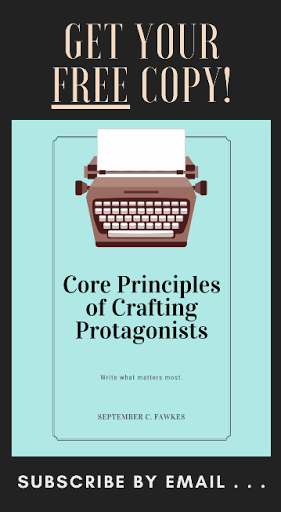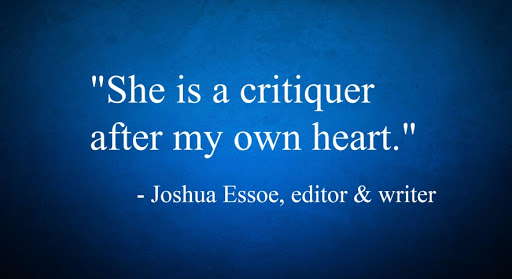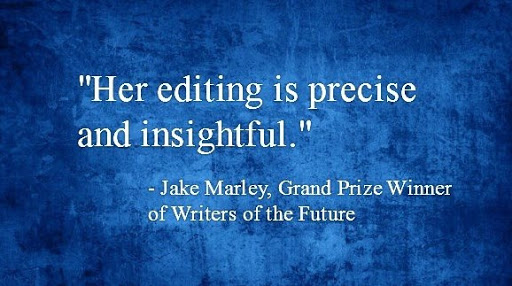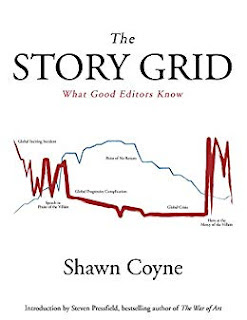Are Your Conflicts Significant?
Every once in a while, I hear writers talk about the importance of writing about significant conflicts. And they're right. Stories need to have significant conflicts to be interesting. Often the promise of significant conflicts is where tension comes from. Significant conflicts are particularly important in the opening page or pages of your story.
Significant conflict does not necessarily mean an extreme conflict, and this is where I see people get confused. We are often told that something extreme needs to happen in the opening to get the reader's attention, like a bomb going off. While stories can open this way, they don't have too. While those conflicts are significant, they aren't the only kinds of significant conflicts.
I have seen plenty of story openings with insignificant conflicts. This might be something like the protagonist being out of toothpaste or a cat being bored. Sure, there is a conflict of some sort, but it's insignificant. Who really wants to read ongoing paragraphs about a character being out of toothpaste and how inconvenient that is? It's little better than having no conflict.
So how do you discern a significant conflict? Well, I'm going to go back to some advice that I refer to frequently when writing story-middles, simply because it is so dang spot-on. Significant conflicts are either broad and big, or they are deep and personal.
So you can have a bomb going off. That's a big conflict. Immediately, people's lives are in danger. But you can also have a character who is deathly afraid of public speaking and socially awkward who has to give speech at a wedding--that's a personal conflict.
In truth, boring conflicts can become significant if you can make them very personal to the character. So your protagonist is out of toothpaste. If your character struggles with something like OCD or is a complete germophobe, this is a significant conflict, to him. And if you can render it that way with all the stylistic tension, and if this is going to be a relevant characteristic of your protagonist throughout the story, then the conflict is appropriate and interesting.
But if you start a story this way, and then never play with or take advantage of or deal with your character being a germophobe again, then the opening conflict is probably actually not that significant or relevant. You might be able to get away with it, if you link the reader into the next, more significant conflict, but then it asks the question, "Why begin with an irrelevant conflict to begin with?"
Now, I'm not saying you can never do this. There are many good stories that do, and there are reasons you may want to, but it is something to consider, and there are wrong ways and right was of handling it. The most important thing is that the opening conflict is significant enough to keep the reader reading until either that particular conflict grows or until it connects into a more significant conflict.
Perhaps more important than what your significant conflict is, is not to open with an insignificant conflict. Then throughout the story, conflicts should continue to be significant on some level or in some way. Admittedly, it's fine to mention insignificant conflicts in passing or in the background, but never as the focus conflict of the scene.
Now, I also wanted to add to my toothpaste example. Rather than it being significant because it's personal to the character, it can also be significant because it directly connects into a bigger problem at hand. For example, if the toothpaste is needed for some sort of science experiment that must be completed in the next hour or else . . . (give your reader some sort of stake or consequence), then the toothpaste conflict becomes more significant. However, it only becomes significant if your reader has that context. You shouldn't spend a page on the the lack of toothpaste as the focus-conflict and then "surprise" the reader by explaining it's needed for this science experiment. Instead, you should clue the audience into its necessity right away. The context is needed to make it significant.
So ask yourself, "Is my conflict significant?"
Now you can go overboard with this question to the point that you freeze up and wallow in confusion. This isn't something you need to lose sleep over or need loud validation for. If you hit that state, then chances are your conflict is significant enough.
But if you ask yourself that question and a light bulb goes off, and you realize the conflict in this opening or in this scene or in this chapter is insignificant (and maybe that's why you have been struggling with it or why it sounds so weak), then maybe you need to reconsider your conflict or think about how to make it significant.
If you already have a significant conflict, then maybe take a moment to consider if you want or need to make it more significant. Depending on the conflict and the focus of the manuscript, sometimes the answer is no. But sometimes the story can be better with some reworkings or tweaks, or in some cases, big revampings, to make the conflict more significant.

















I am a published author, never thought about conflicts but I see what you mean. I see it more as "if that did not happen then...etc." or cause and effect
ReplyDeleteYeah, cause and effect is important too. However you see it is fine, really.
Delete